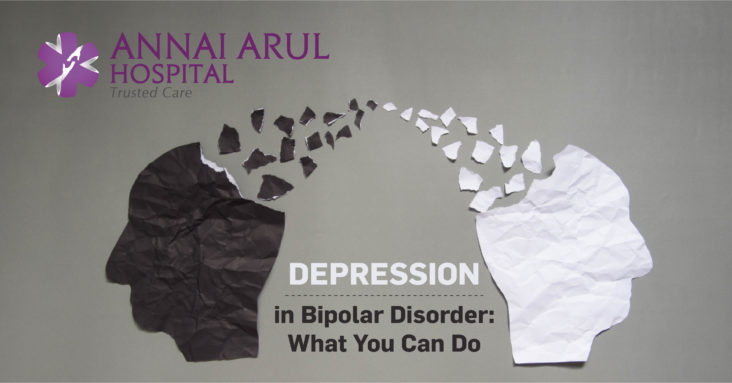Depression or melancholic feeling is a part of the cycle of real highs and lows that accompany bipolar illness. It shields you from feeling like yourself and can make it difficult to do the things you need or need to do.
Be that as it may, the correct treatment can have a major effect. There are various treatment methods for bipolar depression that work well. What else makes a difference? Monitor your symptoms over time. That may enable you to know when a mood change is evolving so that you can deal with it early.
Manifestations
During the depressive period of bipolar illness, you may:
- Feel tragic, stressed, or void
- Have next to zero vitality
- Have an inclination that you can’t appreciate anything
- Sleep too little or too much
- Experience considerable difficulties getting up from bed
- Eat close to nothing or to an extreme
- Experience difficulty in remembering things
- Experience serious difficulties in making a decision
- Consider suicide /harming yourself
You could have all these symptoms or some of them. Somebody with bipolar illnes can once in a while feel miserable yet in addition have periods brimming with vitality. The surest indication of a phase of depression is that you feel down for quite a while – generally at any rate 2 weeks. You may have these episodes once in a while or a few times each year.
What to Do When You’re Depressed?
The most significant action you can take is to begin and remain on suggested treatment regimen. Most incorporate a blend of medication and psychotherapy.
Your specialist may endorse a couple of various types of prescription, mood stabilizers, antidepressants, and antipsychotic drugs. Psychotherapy can likewise enable you to control pressure and perceive your symptoms sooner. One type of psychotherapy called cognitive behavioral therapy, trains you approaches to deal with the negative contemplations and initiate in activities toward off depressive symptoms.
You can find a way to battle depression by adhering to the following:
- Try not to drink liquor or use drugs. They can exacerbate your temperament and stop your medications from working.
- Adhere to a routine. Attempt to go to bed, wake up, exercise, and take your prescriptions at the same time consistently.
- Try not to make real life changes while you’re depressed. Your specialist or therapist might almost certainly help you schedule absences from work if at all you need them.
- Approach a relative or a friend for help. They can enable you to stay aware of your appointments and medications.
If you are considering suicide or harming yourself:
- Tell somebody who can help you right away
- Call your mental health professional
- Call your doctor
- Call emergency or go to the crisis room
Perceive and Prevent Depression
The over energetic and depressive periods of bipolar illness do not clearly follow a pattern. You can have a couple of episodes of depression before you have a hyper or manic episode.
In any case, after some time, you’ll see things that cause changes in your mood and warning signs that depression could be setting in. When you are aware of those manifestations early, you can avoid major depression.
Keep a mood chart to outline how you feel, your medicines, rest, and different exercises. Observe times when you feel focused – possibly when you are with certain individuals or in a particular spot. The main indications of depression could be that you feel tired and cannot rest. Brief times of depression can be an indication that an extreme stage is coming.
The general population around you can enable you to perceive patterns as well. Ask your family and mental health professional to look for changes in your conduct that signal an approaching issue. They might most likely notice things that you do not.
Even if you feel fine, you should keep up with your treatment – it can counteract a backslide of depression. Have a sound eating regimen, exercise, and attempt better approaches to ease stress and deal with your mood: Join a care group, take up a leisure activity, or practice unwinding strategies like meditation, yoga, or massage.


